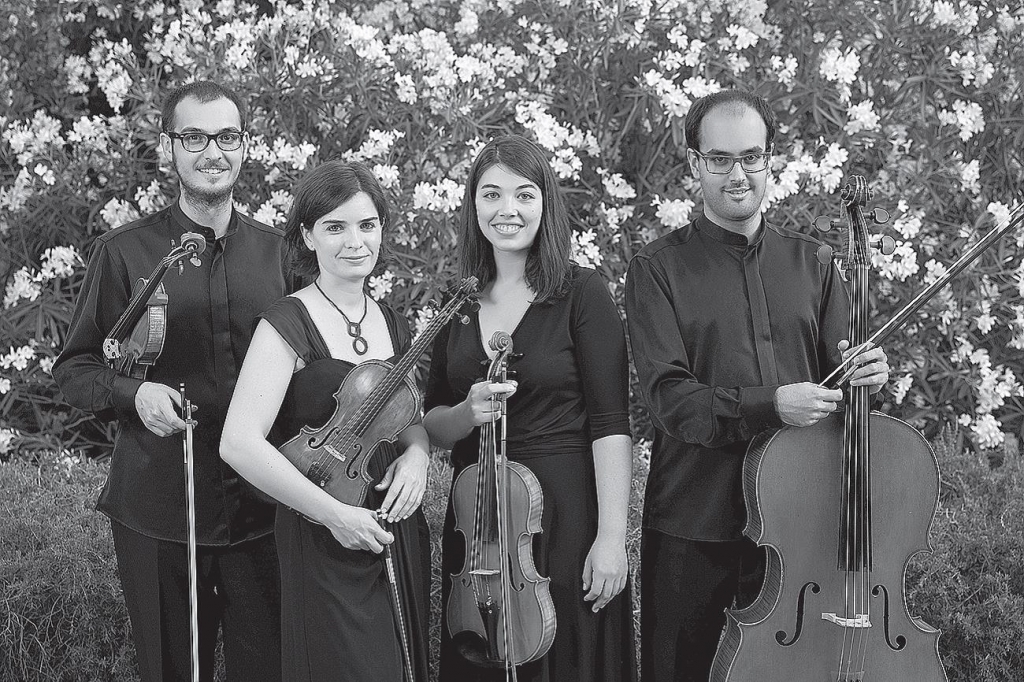
At 7pm
The Cosmos Quartet was formed in 2013, born out of the friendship and complicity of four Catalan musicians who between them span two generations. Each of the Quartet’s members has enjoyed international careers in the fields of soloist, chamber music and orchestras, working under teachers and at schools in London, Paris, Geneva, Cologne, Stuttgart, Basel and Michigan.
They have received classes and advice from Rainer Schmidt, Johannes Meissl, Hatto Beyerle, Miguel da Silva, the Quartetto di Cremona, Anita Mitterer, the Mosaïques Quartet, Patrick Jüdt, Evgenia Ephstein and the Prazac Quartet.
The Cosmos Quartet has become well known, and have recently won: third prize in the “Carl Nielsen International Chamber Music Competition” in Copenhagen; first prize in the Castilla y León International Chamber Music Competition; first prize in the «Mirabent i Magrans» International Chamber Music Competition, in Sitges; the Chamber Music Prize at the ISA Festival (Kammermusik Preis 2014) and the Artis Quartet Prize for the best performance by a string quartet at ISA 2014.
✴ ✴ ✴
In this concert, the Quartet will be presenting a series of works by three iconic composers from the 20th and 21st centuries, and who have shown great innovation in terms of musical language.
Béla Bartók (Hungary, 1881-1945) was hugely important for the transformation of musical language. An explorer and scholar of Hungarian popular music, he incorporated his findings into his compositions, creating a new style that distanced itself from the legacy of Romanticism. He wrote his Quartet no. 3 (which forms part of a cycle of six quartets) in 1927. This is a work which, while very short (15 minutes), the writing is dense and highly innovative, and this is reflected in the polytonality and the use of techniques such as pizzicati, glissandi and col legno battuta (striking the string with the stick of the bow).
Shoichi Yabuta, a Japanese composer born in 1983, reflects the legacy of the Western language that was previously revolutionised by Bartók, Shostakovich
and Stravinsky. The work presented here, Billow, represents an attempt to take the string quartet to its very technical and interpretive limits, and is a clear example of modern-day creation.
Dmitri Shostakovich (St Petersburg 1906 - Moscow 1975), in his Quartet no. 9, uses a language that is more personal and not so closely linked with the Stalin regime, since the composer wrote it after Stalin had died. It forms part of a series of 15 string quartets, a genre through which the composer succeeded in expressing his concerns and fears in a private way, without any need for concealment or disguise.
Cycle: Concert Cosmos Quartet
Organized by: Residents for Researchers